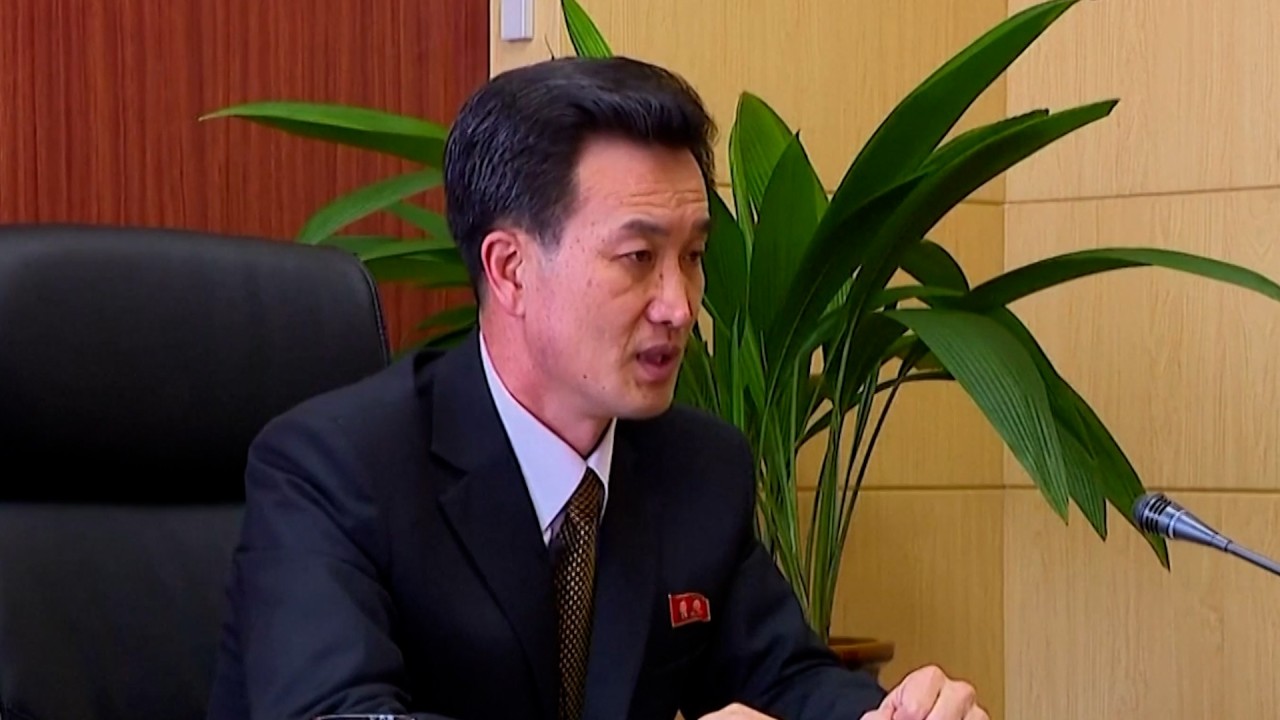
Coronavirus: North Korea reports fifth day of over 200,000 new ‘fever’ cases
- State-run media said on Saturday that more than 2.4 million people had developed ‘fever’ symptoms amid the country’s first confirmed coronavirus wave
- Experts say North Korea is almost certainly downplaying the true scale of outbreak, including a strangely small death toll, to soften the blow on Kim Jong-un
The ongoing coronavirus wave, declared last week, has fuelled concerns over a lack of vaccines, inadequate medical infrastructure and a potential food crisis in the country of 25 million, which has refused outside help and kept its borders shut.
At least 219,030 people newly showed fever symptoms as of Friday evening, taking the total number of such cases to 2,460,640, the official KCNA news agency reported, citing data from the state emergency epidemic prevention headquarters. It said the death toll rose by one to 66.

KCNA did not say how many people had tested positive for the virus.
How will Kim Jong-un handle North Korea’s ‘explosive’ Covid-19 spread?
During a ruling party Politburo meeting on Saturday, Kim insisted the country was starting to bring the outbreak under control and called for tightened vigilance to maintain the “affirmative trend” in the antivirus campaign, KCNA said. But Kim also seemed to hint at relaxing his pandemic response to ease economic woes, instructing officials to actively modify the country’s preventive measures based on the changing virus situation and to come up with various plans to revitalise the national economy.
KCNA did not elaborate on where Kim saw progress, but state media has lauded “good results” in the country’s Covid-19 fight, citing sustained farming and production in key industrial sectors and construction projects. It said Politburo members debated ways for “more effectively engineering and executing” the government’s antivirus policy in accordance with how the spread of the virus was being “stably controlled and abated,” but the report did not specify what was discussed.
Amid a paucity of public health tools, Pyongyang has mobilised more than a million health workers to find people with fevers and isolate them at quarantine facilities. Kim also imposed strict restrictions on travel between cities and towns and mobilised thousands of troops to help with the transport of medicine to pharmacies in the country’s capital, Pyongyang, which has been the centre of the outbreak.
Experts say Kim cannot afford to bring the country to a standstill that would unleash further shock on a fragile economy, strained by decades of mismanagement, crippling US-led sanctions over his nuclear weapons ambitions and pandemic border closures. State media have portrayed an urgent push for agricultural campaigns aimed at protecting crops amid an ongoing drought, a worrisome development in a country that has long suffered from food insecurity, and for completing large-scale housing and other construction projects Kim sees as crucial to his rule.

The virus has not stopped Kim from holding and attending important public events for his leadership. State media showed him weeping during Saturday’s state funeral for top North Korean military official Hyon Chol-hae, who is believed to have been involved in grooming Kim as a future leader during the rule of his father, Kim Jong-il.
North Korea’s optimistic description of its pandemic response starkly contrasts with outside concerns about dire consequences, including deaths that may reach tens of thousands. The worries have grown as the country apparently tries to manage the crisis in isolation while ignoring help from South Korea and the United States. South Korea’s government has said it could not confirm reports that North Korea had flown aircraft to bring back emergency supplies from ally China this week.
The North in recent years has shunned millions of vaccine doses offered by the UN-backed COVAX distribution programme, possibly because of international monitoring requirements attached to those shots. The World Health Organization and Unicef say North Korea has so far been unresponsive to their requests for virus data or proposals for help, and some experts say the North may be willing to accept a certain level of fatalities to gain immunity through infection.
It’s possible at least some of North Korea’s fever cases have been caused by other illnesses such as waterborne diseases, which according to South Korean intelligence officials have become a growing problem for the North in recent years amid shortages in medical supplies.
But experts say the explosive pace of spread and North Korea’s lack of a testing regime to detect large numbers of virus carriers in early stages of infection suggest the country’s Covid-19 crisis is likely worse than what its fever numbers represent. They say the country’s real virus fatalities would be significantly larger than the official numbers and that deaths will further surge in coming weeks considering the intervals between infections and deaths.
North Korea’s admission of a Covid-19 outbreak came amid a provocative run of weapons tests, including the country’s first demonstration of an intercontinental ballistic missile since 2017 in March, as Kim pushes brinkmanship aimed at pressuring the United States to accept the idea of the North as a nuclear power and negotiate economic and security concessions from a position of strength.
Unvaccinated North Korea reluctant to accept medical aid, Seoul says
Nuclear negotiations between Washington and Pyongyang have stalled for more than three years amid disagreements over how to relax crippling US-led sanctions in exchange for disarmament steps by the North.
The UN human rights agency has warned of “devastating” consequences for North Korea’s 25 million people, while the World Health Organization has said unchecked spread could lead to the emergence of deadlier new variants.
Additional reporting by Associated Press


